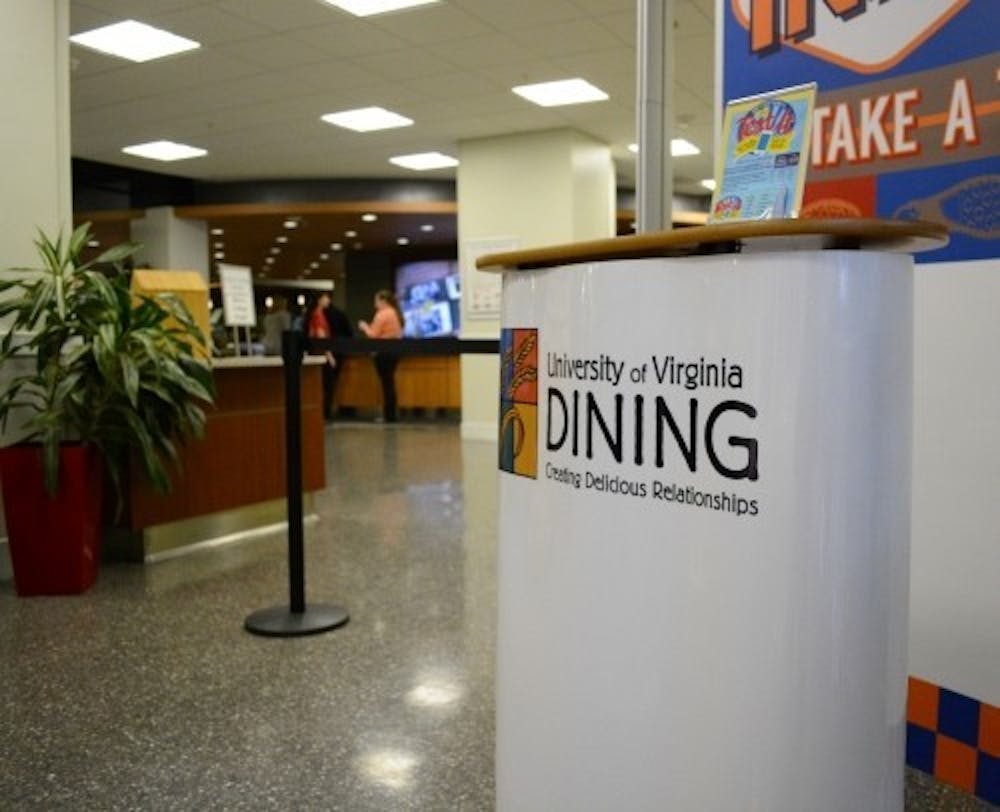Most University students have fond memories of eating with friends in the dining halls and bonding about experiences with dining hall food — from dreaming about deliciously-seasoned fries to being turned off by undercooked pasta and broken ice cream machines. Unfortunately, for some students, an all-access dining experience is marked by dissatisfaction and frustration with the lack of meal options that accommodate their dietary restrictions.
Though dining hall options are selected by registered dieticians and health experts to accommodate food allergies and special dietary restrictions, some students still struggle to safely create well-balanced meals. One such student is fourth-year Education student Macy Stahl. Stahl was diagnosed with Crohn’s disease — an inflammatory bowel disease — in early childhood, which leads to food allergies and intolerances of common dining hall ingredients such as corn, dairy, eggs and sesame.
“There was a lot of misinformation and mislabeling, and you shouldn't have to be afraid to eat a potato from the dining hall,” Stahl said. “You should know confidently what's in the food that you're eating, even if you don't have any allergies.”
Despite Stahl’s troubles, each of the University’s three dining halls offers a Copper Hood station, which specifically caters to students with food allergies and intolerances. The station avoids the eight big allergens — milk, eggs, fish, crustacean shellfish, tree nuts, peanuts, wheat and soybeans — as well as gluten.
For upperclassmen, the Elevate Meal Plan is an option. The plan offers food options from a variety of restaurants on the Corner, including Thyme & Co., Roots Natural Kitchen and Take it Away Sandwich Shop — all of which offer customizable options for individuals with dietary restrictions. Students can purchase packages with a set amount of swipes to order from their favorite restaurants.
First-year students, however, are required to purchase the all-access meal plan, which ranges from $2,890 to $3,130 per semester, regardless of dietary needs. Purchasing an Elevate Meal Plan in addition to the required meal plan can be financially inaccessible for many first-year students.
As a focal point of college-life socializing, food has immense power over a student’s experience at the University. Beyond being a financial burden, a lack of adequate options can have a tangential impact on time spent with peers on a daily basis.
Fourth-year College student Nina Cummings said as a vegan, she skipped out on in-between-class lunch breaks with friends in search of better meal options.
“It sucked because I preferred to get a meal exchange from somewhere with something that I’d rather eat and actually be able to eat, and I knew I wanted to hang out with them, but I would rather have something else for lunch,” Cummings said.
Second-year College student Mira Rizk is another student with dietary restrictions who struggled with justifying the value of an all-access meal plan given the minimal choices available to her as a lactose-intolerant vegetarian. Rizk believes that dining halls should have more variety in options to keep students engaged and to make the meal plan worth its price tag.
“I don't think that the food itself was diverse enough to keep people engaged,” Rizk said. “It definitely wasn't enticing enough to make people want to come back for it, and if that is the goal of the dining hall, then that wouldn't have been reached just because the price of it and then the quality of it wasn't correlating.”
Cummings added part of the problem is the repetitiveness of the options for students with dietary restrictions.
“I never went hungry eating at the dining halls or with the meal exchange, but I absolutely felt restricted because there was one option at best,” Cummings said. “I'm not even a picky eater, but sometimes it's just not what you want to eat or not something that you really like, and so then your only option is to go to the salad bar.”
To help combat this, U.Va. Dining provides some healthy and creative meal ideas from their chefs and dietitians on the Feed Your Potential 365 website. Students are encouraged to use this resource, along with others provided on the U.Va. Dining website, to find food that works for their lifestyles, allergies and intolerances.
Stahl said a lack of exposure to such resources made it difficult to have a positive experience in the dining halls.
“I know there’s a registered dietician, and I know they mentioned her name at some point for me, but nobody actually ever connected me to her,” Stahl said. “I feel like there should be a couple of them so that if someone lists dietary restrictions then they can reach out to students and ask, ‘How can I help you make this work for you?’”







